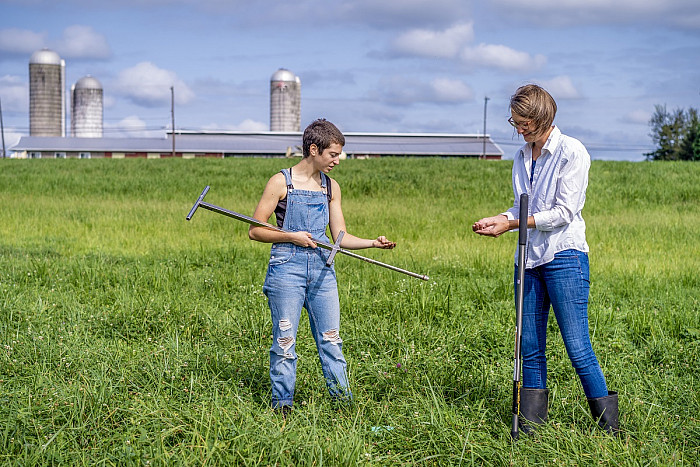Ursinus Adds Food Studies Minor to Academic Curriculum
The interdisciplinary area of study draws upon courses in environmental studies, biology, politics, philosophy, anthropology, health and exercise physiology, psychology and other areas.
“We want students to experience the food system from a number of different perspectives: How society interacts with the food system, how food shapes culture and vice versa, and the biological and ecological aspects of food production,” says Denise Finney, an assistant professor of biology.
The seeds were planted for the new minor when its Department of Environmental Studies was established in 2002. Shortly thereafter, ENV students working with Richard Wallace, professor of environmental studies, established the Ursinus Organic Farm, and Wallace began teaching a course called “Community and Sustainable Agriculture,” which was the first interdisciplinary food studies course at Ursinus.
Then, about five years ago, Wallace introduced a course called “Introduction to Food and Society” that attracted students from many different academic interests and majors.
Due to growing interest, a committee consisting of faculty from several departments and representatives from the Office of Sustainability began to lay the groundwork for the minor.
“The process was collaborative and represented the ideal part of working in a liberal arts context with the ability to cross boundaries and barriers really easily to create something new,” Wallace says. “Food Studies is an accepted field of study worldwide and has been for years. It’s big and interdisciplinary. We’re representing Ursinus as part of a global community of schools that are interested in this type of learning and scholarship and experiential education.”
In upper level classes such as the Nature of Food or Forests and People, where students learn about agroforestry systems, Patrick Hurley, an associate professor of environmental studies, says students who pursue the minor will be able to “have interactions with the food system from soil to shelf.”
“From harvesting at the campus farm to selling produce in Olin Plaza and working with local retailers, they will get the chance to interact with annual and perennial crops and forage systems,” he says. “They will get multiple opportunities to look at the biology and ecology of different plants, and growing conditions and cultural interactions within different types of spaces that produce our food.”
“This minor gives students the opportunity to look at something we each do every day—eat—using different ways of understanding the world to consider the question “What will I do?” Finney says. —By Mary Lobo ’15
